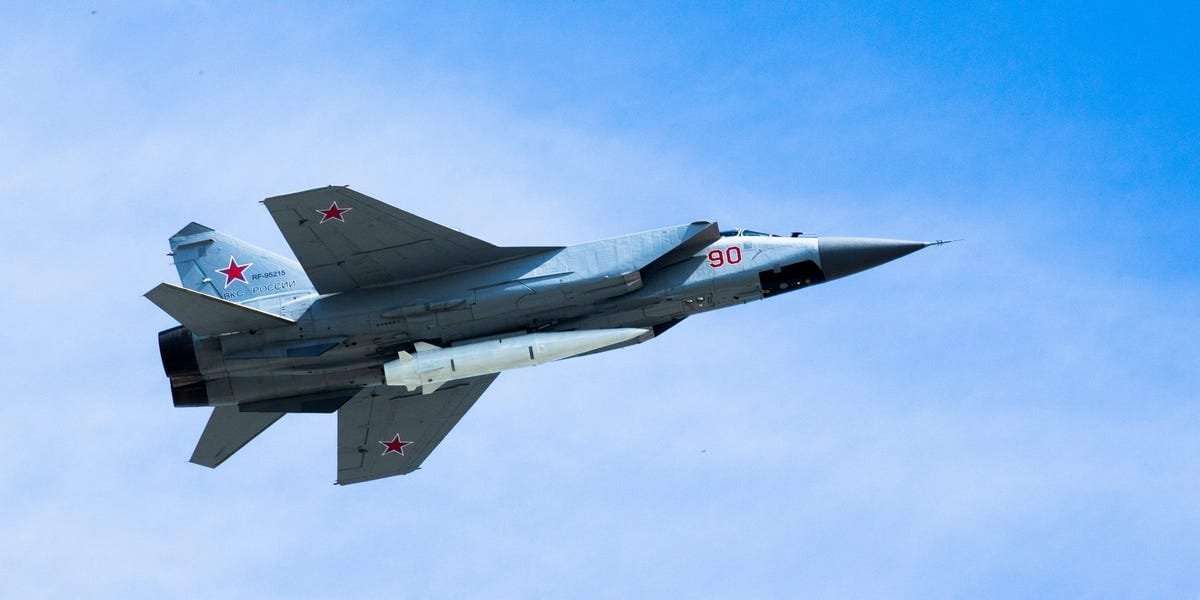Russia's advanced missiles don't work as well as claimed, the UK Ministry of Defence said.
Putin once said the Kh-47M2 Kinzhal were "undefeatable" systems.
In Ukraine they've been defeated often, the MOD said — either intercepted or just missed the target.
NEW LOOK Sign up to get the inside scoop on today’s biggest stories in markets, tech, and business — delivered daily. Read preview Thanks for signing up! Access your favorite topics in a personalized feed while you're on the go. download the app Email address Sign up By clicking “Sign Up”, you accept our Terms of Service and Privacy Policy . You can opt-out at any time.
Russia's air-launched ballistic missiles are not proving "undefeatable" in practice, UK intelligence observed on Tuesday.
The UK Ministry of Defence said in an intelligence update that Russia's Kh-47M2 Kinzhal missiles had a "mixed combat debut" in Ukraine.
"Many of its launches have likely missed their intended targets, while Ukraine has also succeeded in intercepting attacks by this supposedly 'undefeatable' system," it said.
The line about it being undefeatable came from Russian President Vladimir Putin, who used the word when it was unveiled in 2018. Other Russian officials have made much the same.
The prompt for the update was Russia deploying the missile again for the first time in months.
The MOD assessment said that Russia likely launched one at a target in central Ukraine on December 14, the missile's first outing since August.
According to a Telegram post by Ukraine's Air Force, Russia launched three of them towards Kyiv and a strategic airfield in the western city of Starokonstantinov.
An anti-missile unit intercepted one in the Kyiv region, Ukraine said. It didn't say what happened to the other two.
The MOD already reported in October that Kinzhal's performance had so far been "poor," despite the bombast with which Russia describes it.
In a 2018 address to Russia's Federal Assembly, Russian President Vladimir Putin numbered them among six super weapons, per the MOD.
At the time, Putin touted the missile as "flying at a hypersonic speed, ten times faster than the speed of sound, that can also maneuver at all phases of its flight trajectory."
He said that its speed "allows it to overcome all existing and, I think, prospective anti-aircraft and anti-missile defense systems, delivering nuclear and conventional warheads in a range of over 2,000 kilometers."
However, the Kinzhal's claim to be a hypersonic weapon doesn't hold up to scrutiny.
Missiles are considered "hypersonic" when they travel over five times the speed of sound with "significant maneuverability," per a research briefing by the MOD.
While ballistic missiles, like the Kinzhal, do have the capacity for hypersonic flight with some maneuverability, they don't have sustained hypersonic flight ability, experts said, as Business Insider previously reported .
Kinzhal is an advanced system designed to be fired at speed and altitude from the MiG-31, a fast-moving Russian combat aircraft, per the Center for Strategic and International Studies' Missile Threat project .
